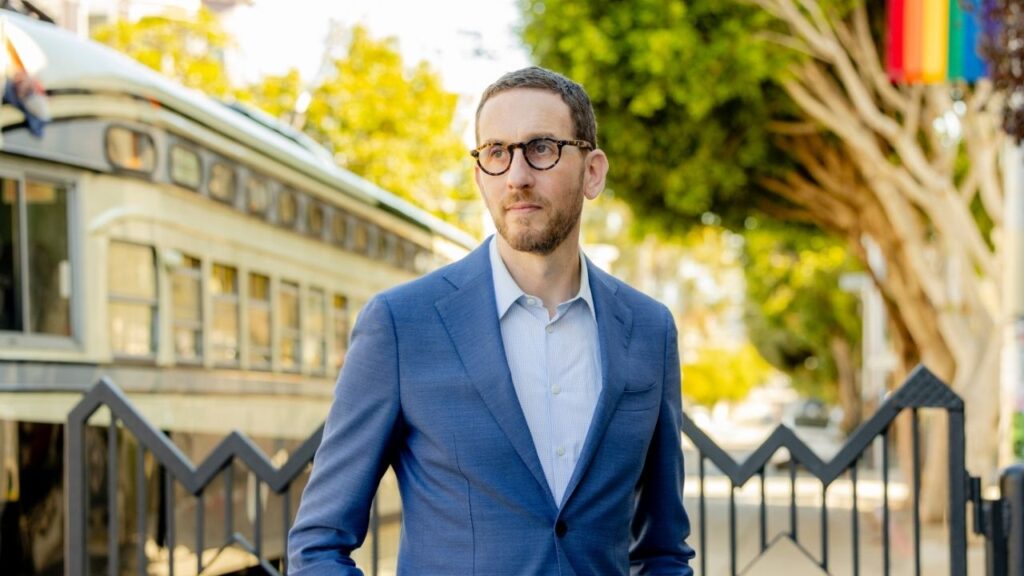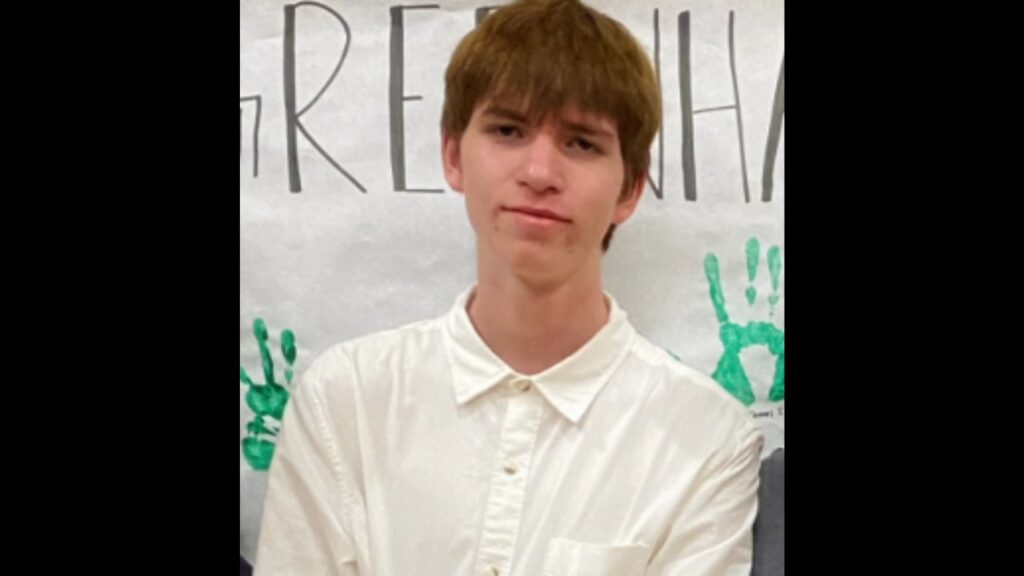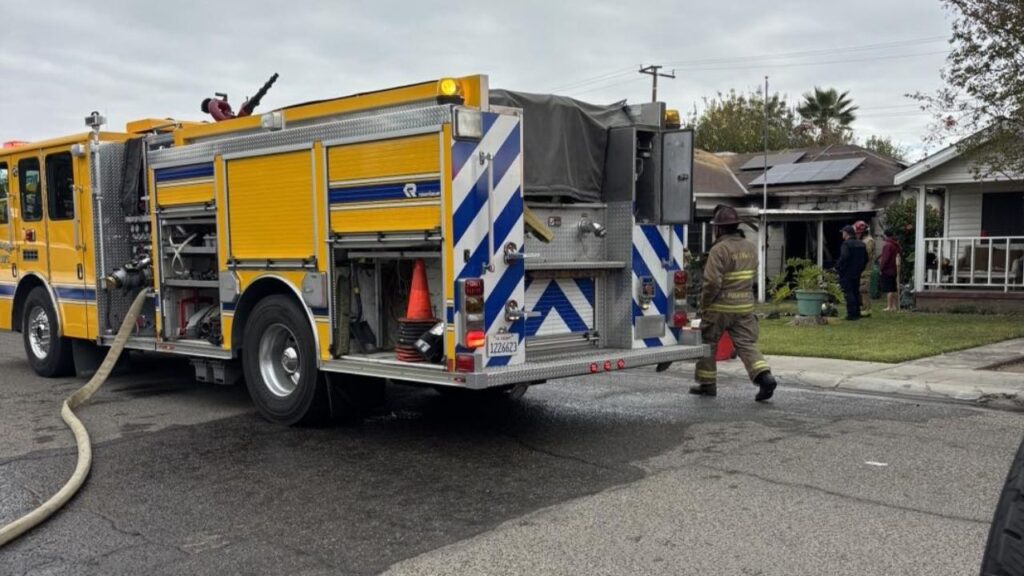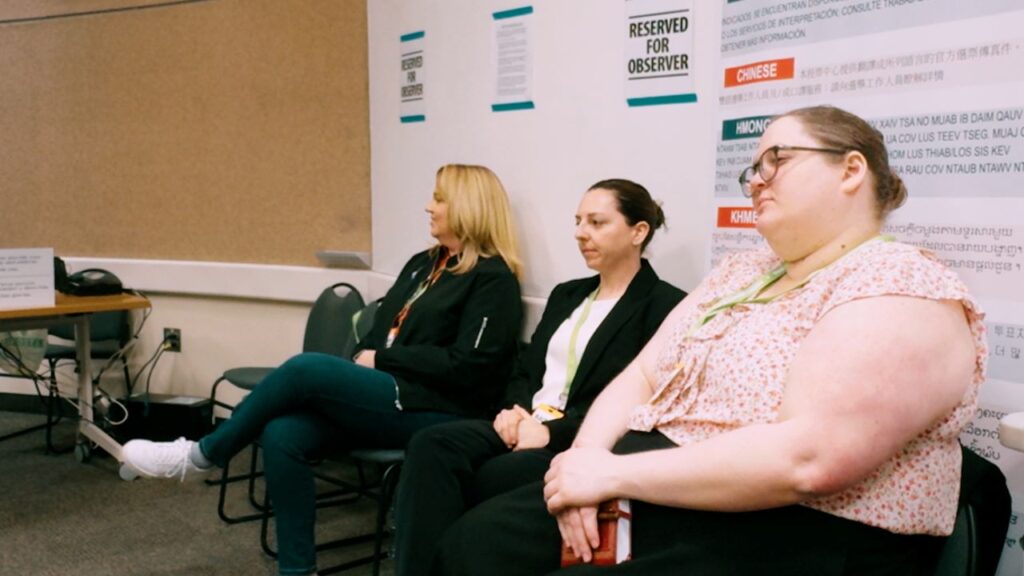Fresno County will roll out its CARE Court program on Dec. 1, allowing family members, first responders, and county workers to petition for treatment for people with schizophrenia. (GV Wire Composite/Paul Marshall)

- Fresno County is starting its CARE Court program Dec. 1 as a way for relatives or county workers to enroll someone with a mental disorder into treatment.
- While the program is voluntary, Riverside County has seen it keep people out of jail or prison.
- Engagement with respondents can be a lengthy process with results not immediately seen, officials find.
Share
|
Getting your Trinity Audio player ready...
|
A new route for family members to secure mental health treatment rolls out in Fresno on Dec. 1.
Gov. Gavin Newsom’s CARE Courts — Community Assistance, Recovery, and Empowerment — allows family members, first responders, or county behavioral health workers to have people suffering from certain psychotic disorders such as schizophrenia admitted into treatment.
While sold as a route to mandate treatment for those with mental health disorders, what counties have found is the law lacks enforcement measures, said Jennifer Bender, supervising deputy public defender for Riverside County, which piloted the initiative last year.
However, the ability to confront people with options for treatment has provided some successes, she said, especially if it means keeping them out of the criminal justice system.
“We know what happens to individuals who are not provided services and individuals who are unable to take advantage of services. They pick up criminal cases,” Bender said. “And then those services don’t exist for them anymore.”
Courts Found CARE Enforcement Voluntary
In California, 1.6 million adults suffer from a serious mental illness, according to a 2022 study from the U.S. Substance Abuse and Mental Health Services Agency. Of the 170,000 homeless in the state, a quarter suffer from a serious mental illness, the Western Center on Law and Poverty.
A 2017 study from Weill Cornell Medicine shows the rate of severe mental illness in jail and prison to be between 16% and 24% compared to 3.9% and 5% in the general community.
As the criminal justice system has been the default mental health system in many ways, Bender said, most counties turned to the public defender to represent respondents.
In Riverside, 100 petitions have been filed since the program’s rollout in October 2023, Bender said. A majority have come from family members, but others have come from county workers and a handful of first responders.
Related Story: Fresno’s Middle Class Has Long Lacked Mental Health Care. Will New Biden ...
Once the petition is received and the person contacted, they are told about available treatments. Treatment can last for one year, with an optional one-year extension. Programs include therapy, rehab, and housing.
Some counties have taken holistic approaches, including acupuncture, said Devin Fathi, supervising attorney for the CARE Program with the Homeless Advocacy Project.
While the statute does allow for treatment to be court ordered, what officials have found is enforcement is limited, Becker said. Courts cannot arrest or hold anyone in contempt. But failure to complete a program can be used against someone if they end up in a conservatorship hearing.
Bender said some people who have been eligible for CARE Courts have ended up in court-ordered conservatorship programs.
Among those who accept treatment, they’ve had some successes. Bender expects the first graduations to come soon.
“We’ve had some individuals who were at risk of losing housing because of their symptoms, we’ve had people who were unhoused who are now in stable housing,” Bender said. “We’ve also had people who want nothing to do with us and ultimately, their case didn’t really go anywhere.”
It Can Be Months to Convince Someone to Accept Treatment
Getting people to accept treatment can be a challenge.
San Diego County officials found that it can take 54 days before someone agrees to accept treatment, said Amina Flores-Becker, Fresno County’s deputy county administrative officer.
“We’re talking constant, constant outreach and engagement, not a few days here, a few days there, this is almost daily engagement to get a respondent to agree to participate in CARE,” Flores-Becker said.
In Riverside, the public defender’s office created a phone number that respondents can call or text. Bender has seen some success with that, especially the texting feature.
Finding the person can be a challenge as well.
Related Story: Fresno, Have You Checked on Your Mental Health Lately?
In San Francisco, about half of the 50 people they’ve received petitions for don’t have homes, Fathi said.
The petition will list an address for people who have one. But it may just have a general location, such as the Tenderloin — a district in San Francisco.
Representatives get to know local shelters or kitchens and who a respondent might hang out with, Fathi said.
“A lot of our day working in CARE Court is actually spent on the street trying to find these folks,” Fathi said.
CARE Courts Did Not Come With Much Additional Funding
CARE Courts require accountability on the part of counties, Fathi said.

“We are ready to go.” — Susan Holt, behavioral health director, Fresno County
If a court finds they are not providing agreed upon services, fines can be imposed, he said.
While eligibility for CARE Courts is limited, it didn’t come with much additional funding. The state allocated $93 million for startup costs and a separate $1.5 billion fund for behavioral health beds. The county has 10 beds, said Susan Holt, behavioral health director of Fresno County.
Paying for programs will depend on demand, Holt said. She expects outreach to be the most demanding part of CARE Courts, and the state does reimburse those costs, she said.
The county pays for care, according to a spokesperson for Fresno County Department of Behavioral Health. For those with private insurance, the county gets reimbursed, but no costs go to the respondent.
CARE utilizes existing programs, saving a data tracking program they had to develop, Holt said. Holt said they feel very prepared for the launch of the program on Dec. 1.
“We are ready to go,” she said.
Many respondents have social security benefits, Bender said, and county workers enrolled some in Medi-Cal programs.
She said even given the program’s shortfalls, CARE Courts still provide treatment options before people fall into the jail or prison, where treatment is much harder to secure.
“I’m hopeful that the more robust it will be, the more people it can help and prevent intensive treatment,” Bender said. “Because those types of treatment don’t always become successful.”
RELATED TOPICS:
Categories

Kazakhstan to Join Abraham Accords, Trump Says

Chowchilla Police Arrest Two in Connection With Shooting

Who Will Replace Pelosi in Congress?

















